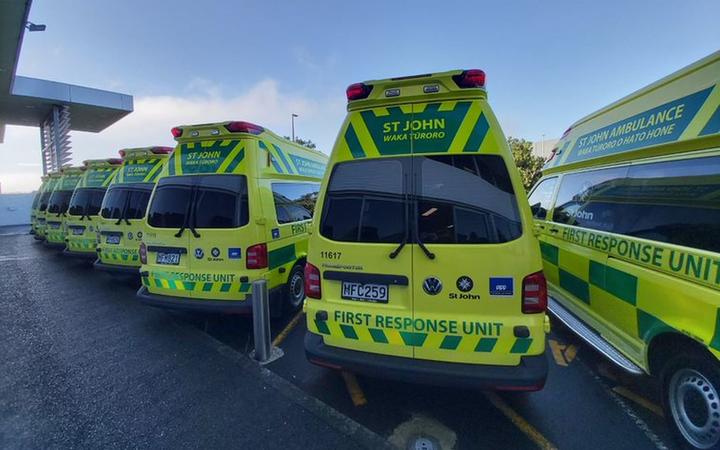The government is being told its huge health system overhaul should include a fully funded ambulance service.
 The St John ambulance service relies in part on donations and volunteers. File image Photo: St John / Supplied
The St John ambulance service relies in part on donations and volunteers. File image Photo: St John / SuppliedIn countries like the United Kingdom and Canada, ambulances are paid for by their governments – but here in Aotearoa the St John service service relies in part on donations and volunteers.
First Union said the upcoming Health New Zealand initiative – which will see the district health boards turned into a single entity – was an opportune moment for change.
Funding from the government for St John is about 80 percent with about $190 million provided for the life-saving service each year.
But the union’s spokesperson Jared Abbott said bridging the remainder was essential for both ambulance workers and public health.
Rolling the services into Health NZ was key, he said.
“At the moment it’s no different to the various DHBs in terms of the postcode lottery – you do get a different service depending on where you live in the country.
“It’s our view that by bringing it in house we will get more consistency in terms of how [ambulance services] are brought to the public.”
The “quasi-charity funding model” which St John operated under would never be accepted for emergency departments and other health services, Abbott said.
“It’s not just about the 30 percent covering in terms of the full funding, it’s about them being responsible for the service that’s being provided and it doesn’t make sense to us that the current ambulance service is contracted out when all other health services are conducted in house.”
However, these changes would require a major funding overhaul, but delaying it longer could have significant health implications, he said.
‘On the streets shaking tins’
Jeff, who moved to New Zealand from the UK, said he’d be happy to pay more in taxes to fund ambulances.
“I’d be totally in support of it. What I’ve grown up with in the UK … is that we’re paying for the service and that is able to grow and develop as it needs to.
“It doesn’t have to rely on people out on the streets shaking tins,” Jeff said.
Auckland resident Colleen agreed and said it was strange the ambulance still functioned as a charity.
But St John itself didn’t go as far as to say that it wanted to operate fully under government funding.
In a statement to RNZ it said it hoped improvements to ambulance services would be an important part of the healthcare reform.
“We believe the new system provides opportunities for St John Ambulance to make an increasing contribution as part of a more integrated and equitable emergency and primary care system that will benefit all New Zealanders.”
A 2020 independent review into St John found the organisation was struggling with underfunding and lacked financial sustainability.
It also noted “serious financial risk” and highlighted the need to ensure its long-term financial health.
